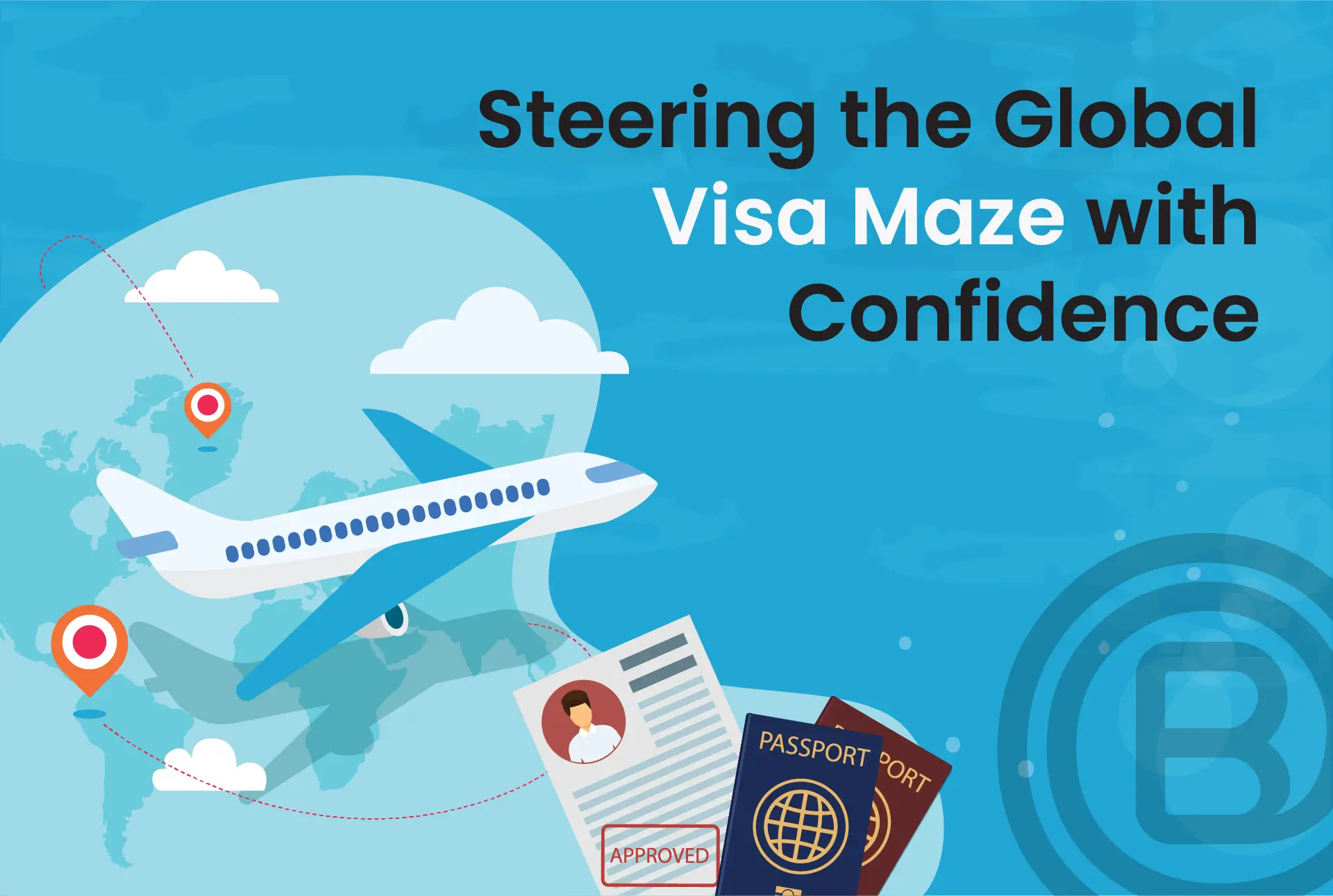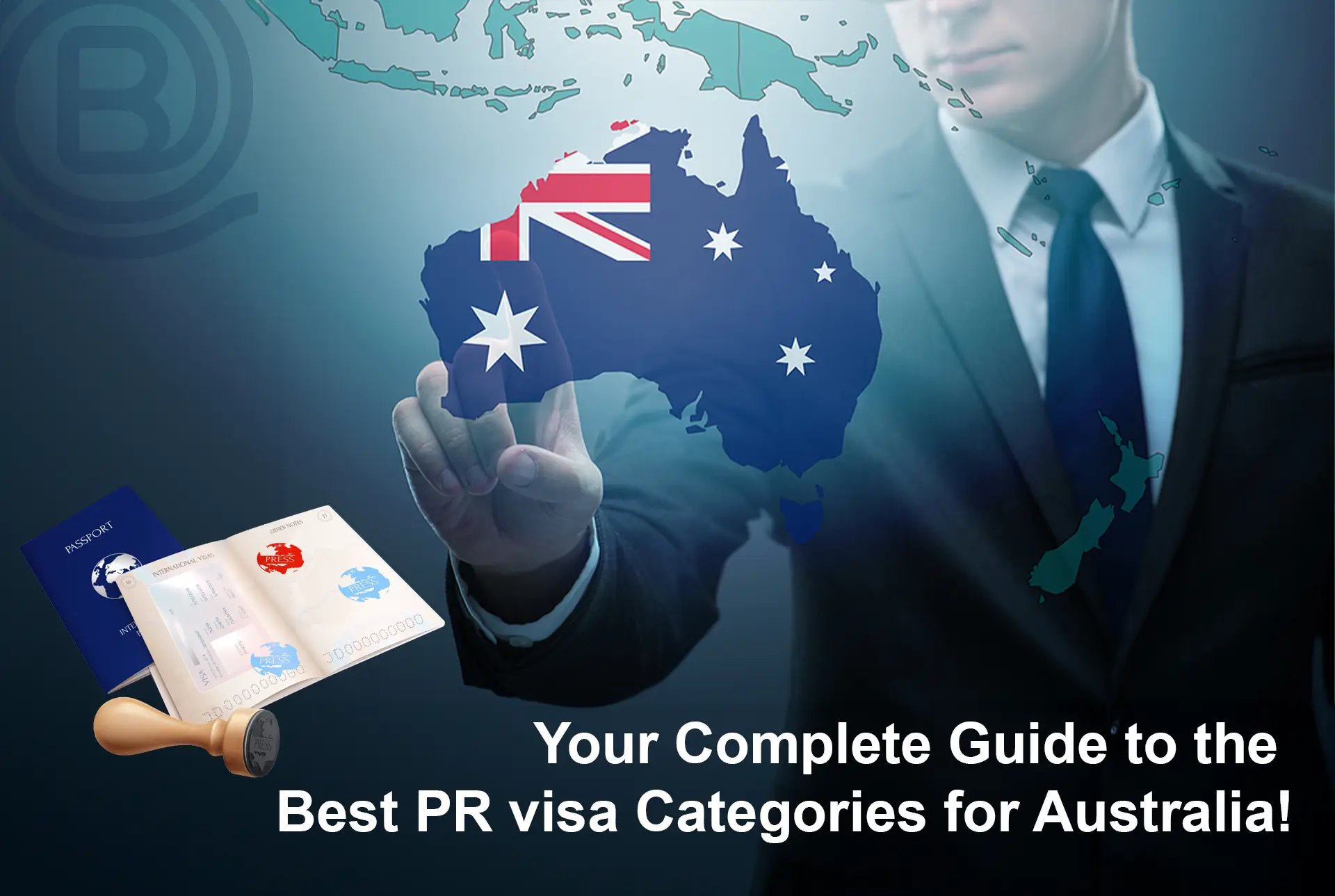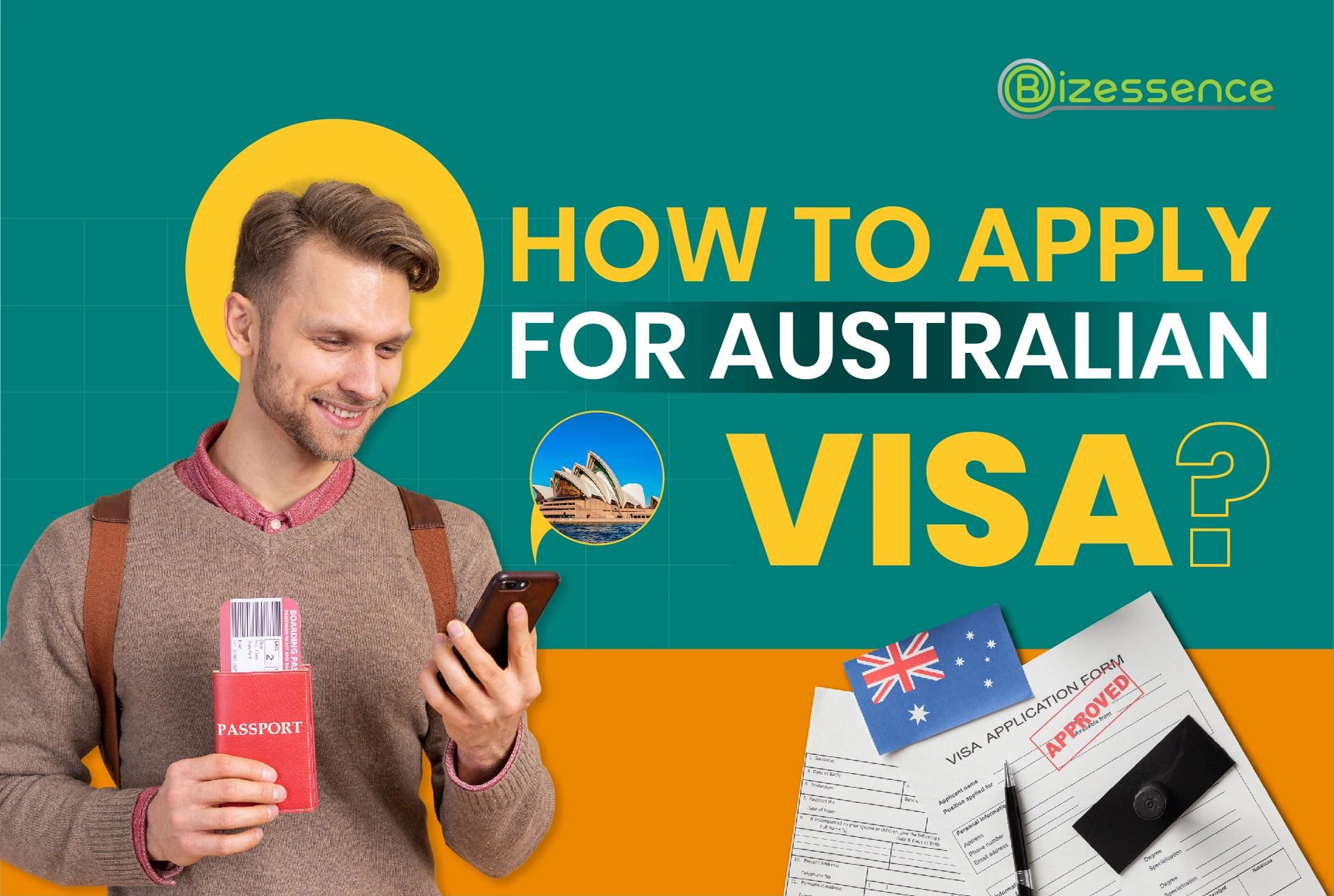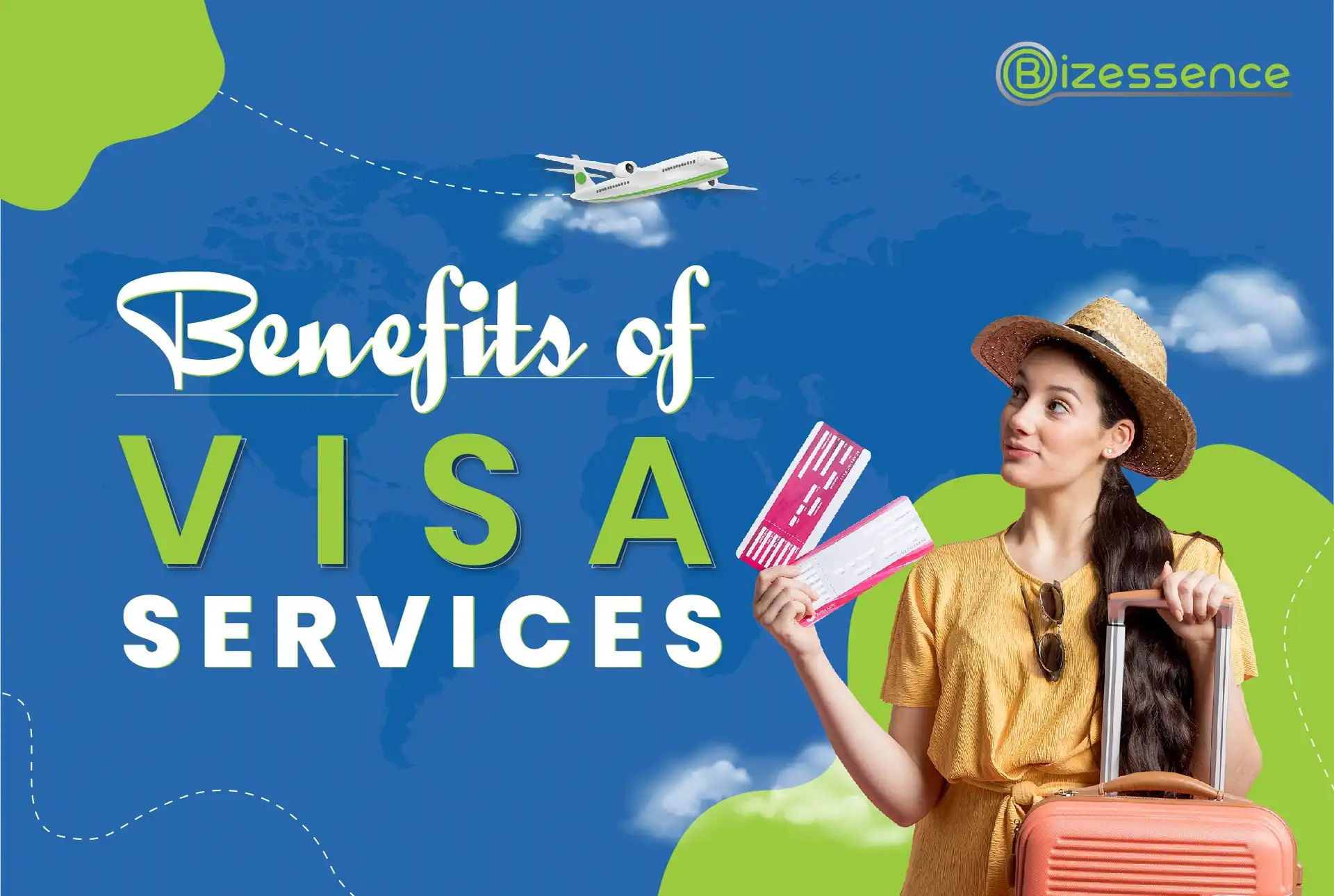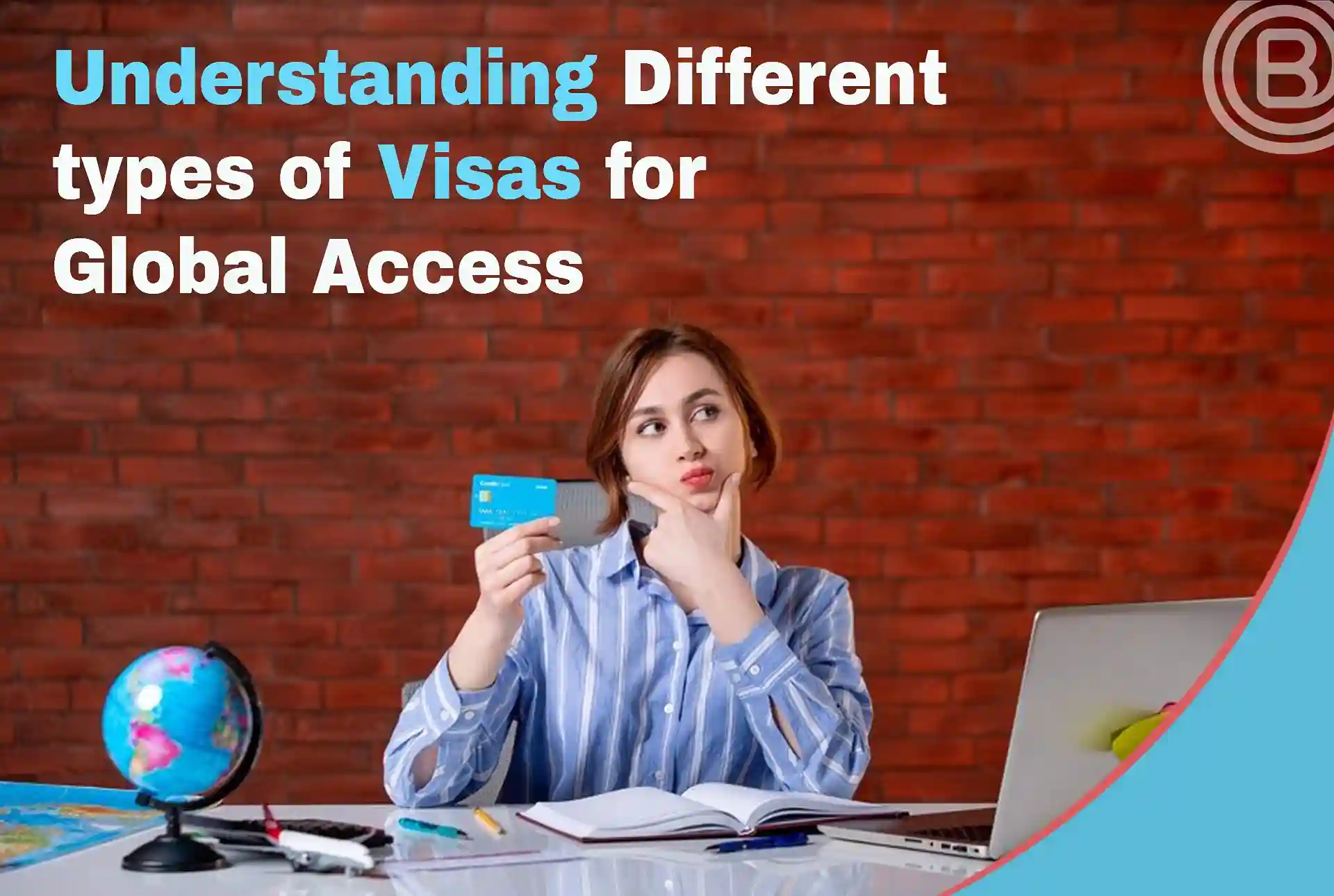Understanding the significance of visas in international travel is crucial. Visas provide legal authorisation, enable immigration control, ensure compliance with laws, protect national interests, and reflect diplomatic relations between countries. But navigating the various visa types can feel like diving into a sea of rules and regulations.
Each country has different requirements and processes, which can be confusing at first glance. Let’s dive into the key visa types and what they offer!
Table of Contents
- What is a Visa?
- Exploring different visa types for global mobility
2.1 Tourist Visa
2.2 Business Visa
2.3 Work Visa
2.4 Student Visa
2.5 Immigration Visa
2.6 Family Reunion Visa - Understanding short-stay and long-term options
3.1 Short-stay Visa
3.2 Long-term Visa - Where and how to apply for a visa
- Documentation needed for visa application
- Choosing the right visa
- Key Takeaways
- FAQs
What is a Visa?
-
- A visa is an official document that allows you to enter, stay, or leave a country for a specific purpose
-
- It’s like a golden ticket that grants you access to new experiences and opportunities.
-
- Different countries have various visa types, each designed for specific purposes—so it’s crucial to choose the right one.
-
- Visas are vital for maintaining border security, ensuring compliance with immigration laws, and facilitating international travel.
Exploring Different Visa Types for Global Mobility
Tourist Visa
-
- A tourist visa is designed for individuals intending to visit a foreign country for leisure or recreational purposes, such as sightseeing, visiting friends or relatives, or exploring cultural attractions.
-
- Typically issued for a short duration, tourist visas often restrict activities related to employment, business, or study.
-
- Visas are granted based on the applicant’s intention to return to their home country.
-
- This is often proven through factors such as ties to their home country, financial stability, and a round-trip ticket reservation.
Business Visa
-
- A business visa facilitates travel for individuals intending to engage in business-related activities in a foreign country.
-
- These activities may include attending meetings, conferences, trade shows, or negotiating business deals.
-
- Business visas may have varying validity periods, depending on the purpose and duration of the planned activities.
-
- Applicants are often required to provide documentation such as letters of invitation from the host company, details of the planned business activities, and proof of financial solvency.
Work Visa
-
- Work visas often require sponsorship from the hiring company or institution.
-
- The application process can involve several steps, including labour market assessments and background checks.
-
- Work visas often come with conditions regarding the type of work allowed, the duration of employment, and the possibility of renewal or extension.
Student Visa
-
- A student visa is necessary for individuals planning to pursue education or training in a foreign country.
-
- These visas are typically granted to applicants who have been accepted into a recognised educational institution.
-
- Applicants must also prove they have enough financial resources to support themselves during their studies.
-
- Student visas may come with restrictions on employment to ensure that the primary focus remains on academic pursuits.
Immigration Visa
-
- An immigration visa, also known as a residency visa or permanent residency visa allows individuals to establish long-term residency or citizenship in another country.
-
- The application process is often more extensive, requiring background checks, medical exams, proof of financial stability, and a commitment to integrate into the host society.
-
- These visas may lead to permanent residency or citizenship, depending on the country’s laws.
Family Reunion Visa
-
- A family reunion visa allows individuals to join family members who are already residing in a foreign country.
-
- These visas are typically granted to spouses, children, parents, or other close relatives of citizens or residents of the host country.
-
- Applicants must provide evidence of their relationship with the sponsor, along with other required documentation such as proof of accommodation, financial support, and health insurance coverage.
-
- Family reunion visas aim to reunite families and facilitate the integration of new arrivals into the host country’s society.
Understanding Short-stay and Long-term Options
Short-stay Visa
-
- A short-stay visa, also known as a temporary visa or visitor visa, permits individuals to stay in a foreign country for a limited period, typically for tourism, business, or transit purposes.
-
- These visas are often issued for stays ranging from a few days to several months, depending on the purpose of the visit and the specific regulations of the host country.
-
- Short-stay visas may be single-entry, allowing one entry into the country during the specified period, or multiple-entry, permitting multiple entries within the visa validity period.
Long-term Visa
-
- A long-term visa, also referred to as a residence visa or extended-stay visa, allows individuals to remain in a foreign country for an extended duration, usually exceeding the typical limits of a short-stay visa.
-
- Long-term visas are commonly granted for purposes such as work, study, family reunification, or immigration.
-
- They may have varying validity periods, ranging from several months to several years, depending on the specific circumstances and visa category.
-
- Holders of long-term visas may be required to fulfill additional requirements, such as registering with local authorities or obtaining residency permits, to legally reside in the host country for an extended period.
Where and How to Apply for a Visa
Here’s where and how you can apply for a visa:-
- Embassies or consulates: Information on the location and contact details of the embassy or consulate responsible for processing visa applications in the applicant’s home country or region.
-
- Online application systems: Availability of online visa application platforms for certain countries, allowing applicants to submit their visa applications electronically.
-
- Visa centres or agencies: Utilisation of visa centres or authorised agencies that facilitate the visa application process, including assistance with form filling, document submission, and appointment scheduling.
Documentation Needed for Visa Application
Here are the essentials you’ll need to get through your visa application process:-
- Completed Application Form: Submission of the visa application form, either in print or online, providing accurate and comprehensive information as per the instructions.
-
- Passport: Presentation of a valid passport meeting the minimum validity requirements specified by the host country’s immigration authorities.
-
- Passport photos: Provision of recent passport-sized photographs adhering to the specified dimensions, format, and background requirements.
-
- Supporting documents: Submission of additional documents required for the specific visa category, such as letters of invitation, employment contracts, or educational transcripts.
-
- Visa fees: Payment of the applicable visa processing fees, which may vary depending on the visa type, duration, and the applicant’s nationality.
-
- Biometric data: Requirement for biometric data collection, including fingerprint scans and digital photographs, as part of the visa application process in some countries.
Choosing the Right Visa
Selecting the right visa can feel overwhelming, but it’s essential for ensuring a smooth journey. Here are some tips:-
- Research requirements: Each visa has specific requirements—make sure you understand what’s needed before applying.
-
- Consider your purpose: Think about why you’re going abroad and choose a visa that aligns with your goals.
-
- Seek professional help if needed: If you’re unsure about the process, consider consulting an immigration expert who can guide you through it.
Key Takeaways
Responsible travel begins with understanding and complying with visa requirements. For a smooth and hassle-free travel experience, plan ahead, gather the necessary documentation, and apply for your visa well in advance. Remember to stay informed about any updates or changes to visa regulations. Utilise reliable resources and seek assistance when needed. Safe travels!FAQ
- 1. What is the easiest visa to get?
-
Tourist visas are generally the easiest to obtain for most travelers.
- 2. How long does it take to get a visa?
-
Processing times vary by country and type of visa; it can take anywhere from days to months.
- 3. What is a visa waiver?
-
Visa waiver allows entry without a visa for a limited time for certain nationals.
- 4. How do I apply for permanent residency?
-
You can apply for permanent residency through a country’s immigration process, often requiring work, study, or family ties.
- 5. What happens if I overstay my visa?
-
Overstaying can result in fines, deportation, or bans from reentry.
Related Posts
Steering the Global Visa Maze with Confidence
Leonardo da Vinci once said, ‘For once you have tasted flight, you will forever walk…
Your Complete Guide to the Best PR visa Categories for Australia!
Australia is a popular destination for immigrants seeking to live and work in a developed…
How to Apply for an Australian Visa?
Australia is one of the top tourist destinations across the world, and you would be…
Benefits of Visa Services!
A broad travelling experience is a heartwarming experience for anyone who is doing it for…


